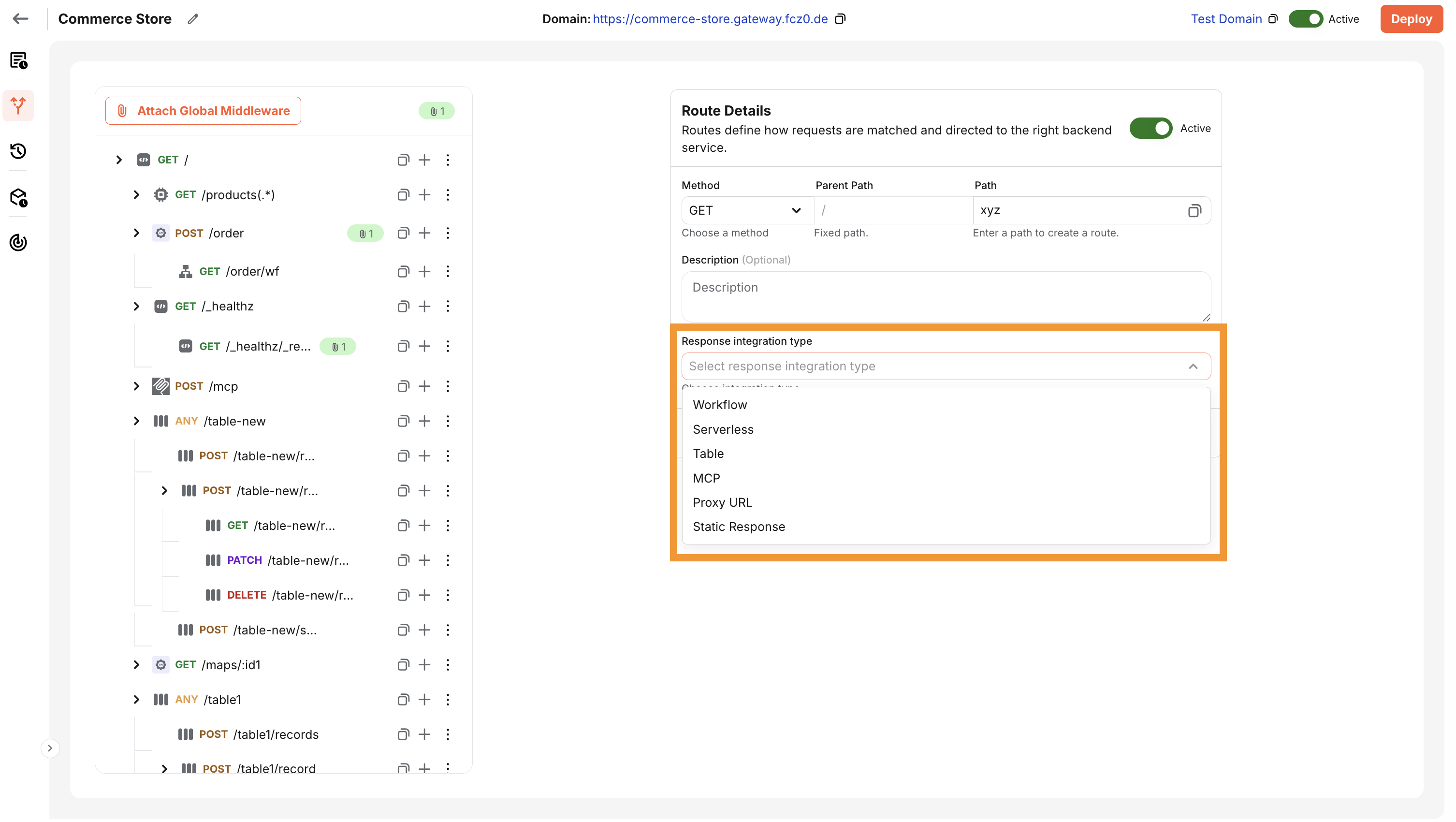Integrations
Boltic Gateway supports multiple backend integration types, empowering you to route requests to the right execution layer—be it logic, data, or external services. Each integration type is purpose-built for different use cases, and selecting the right one helps streamline functionality, performance, and maintainability.
 |
|---|
Available Integration Types
Workflow
- Executes a Boltic Workflow—a low-code, multi-step automation.
- Supports variable mapping, conditional logic, delays, and async patterns.
- Perfect for chaining APIs, enriching data, or executing business processes.
Use Case: Order processing, lead qualification, automated notifications.
Serverless
- Invokes a Boltic Serverless Function with full request context.
- Supports multiple runtimes with auto-scaling and built-in logging.
- Best for lightweight, stateless, and event-driven logic.
Use Case: Token validation, request shaping, calling external APIs.
Tables
- Connects to a Boltic Table and exposes ready-to-use CRUD APIs.
- Comes with system routes for create, read, update, delete, and schema access.
- Schema validation and environment separation (Test/Prod) built-in.
Use Case: Dynamic config storage, product catalogs, form metadata.
MCP (Model Context Protocol) Server
- Forwards the request to a registered Boltic MCP Server—a fully managed backend capable of advanced reasoning and response generation.
- The MCP Server evaluates the incoming payload using the associated model context, making it ideal for AI/ML-driven logic or dynamic computation.
- Secure, isolated, and version-controlled environment for smart backend execution.
Use Case: AI-powered decisioning, recommendation engines, real-time custom response generation.
Proxy URL
- Forwards the request to an external or internal Proxy Target URL.
- Supports dynamic path/param/header injection, retries, and auth middleware.
- Great for bridging existing microservices, monoliths, or SaaS APIs.
Use Case: Legacy service exposure, third-party API forwarding.
Static Response
- Returns a predefined response (JSON, text, or custom content-type).
- No downstream execution; ideal for mocks, stubs, or simple responses.
- Fastest route type with zero latency dependency.
Use Case: Mock APIs, versioned deprecation responses, simple pings.
Best Practices
- Use Workflows for orchestrating logic across multiple APIs or integrations.
- Choose Serverless for concise, code-driven logic without infrastructure overhead.
- Use Tables when you need instant, schema-bound CRUD APIs.
- Choose MCP for intelligent or contextualized responses using model-aware logic.
- Use Proxy URL to stitch in existing systems or external services.
- Choose Static Response for mocking, placeholders, or informational endpoints.
With these flexible integration options, Boltic Gateway enables developers to build and scale powerful APIs quickly—without being bound to a single backend paradigm.